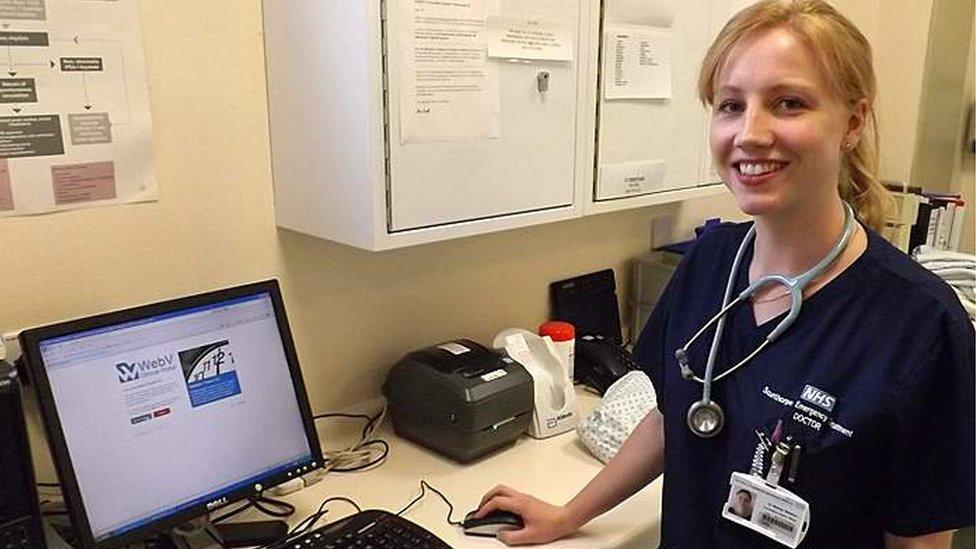Junior doctors row: David Cameron asks doctors to call off strike
- Published
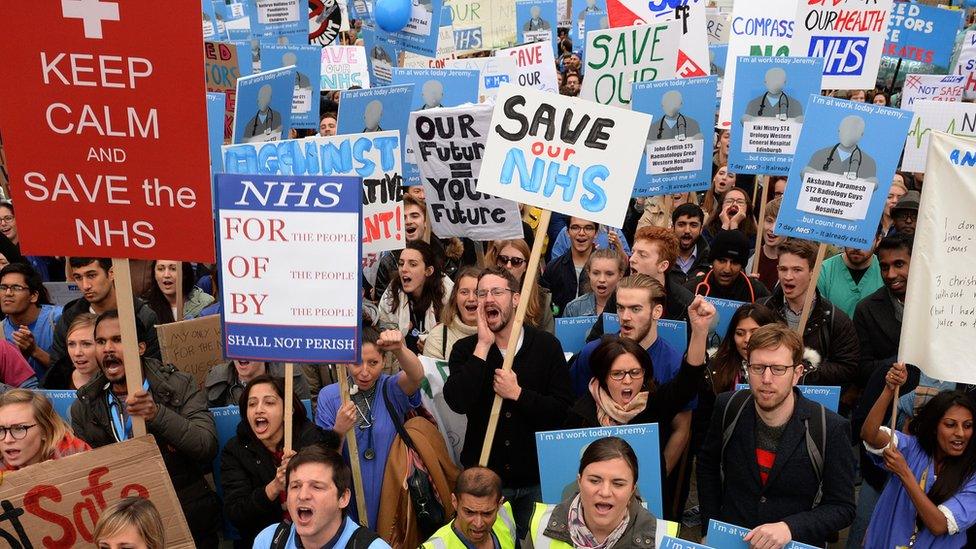
David Cameron has urged junior doctors to call off their planned strike.
He warned Tuesday's strike will cause "real difficulties for patients and potentially worse".
The strike begins across England at 08:00 GMT, from when junior doctors will only provide emergency care.
Talks between the doctors' union - the BMA - and NHS bosses continue. The BMA has said the strikes "demonstrated the strength of feeling amongst the profession".
Issues being disputed by the BMA and NHS include weekend pay and whether there are appropriate safeguards in place to stop hospitals over-working doctors.
Three strikes are set to take place from:
08:00 Tuesday 12 January to 08:00 Wednesday 13 January (emergency care will be staffed)
08:00 Tuesday 26 January to 08:00 Thursday 28 January (emergency care will be staffed)
08:00 to 17:00 Wednesday 10 February (full walk-out)
The Prime Minister called on medics "at the late stage" to get back around the table before the proposed walkout.
He said: "This strike is not necessary, it will be damaging.
"We are doing everything we can to mitigate its effects but you can't have a strike on this scale in our NHS without there being some real difficulties for patients and potentially worse."
NHS England estimates nearly 4,000 operations and procedures out of 31,000 will be cancelled because of the strike.
It says everything possible is being done to provide safe emergency care and minimise the impact on patients.
Anne Rainsberry, the NHS England director overseeing preparations, said: "We have tried and tested plans to deal with a range of disruptions including industrial action. As ever, the safety and care of patients is our top priority and the NHS has robust plans in place to ensure those who need emergency treatment will continue to receive it.
"We have been working with hospitals and other NHS providers across the country to ensure we can continue to protect the safety of our patients and provide the urgent services they need. We will monitor the situation across the country to ensure these plans are in place, and are ready to respond to any significant increases in pressure in any region over the course of this dispute."

What is the dispute about?
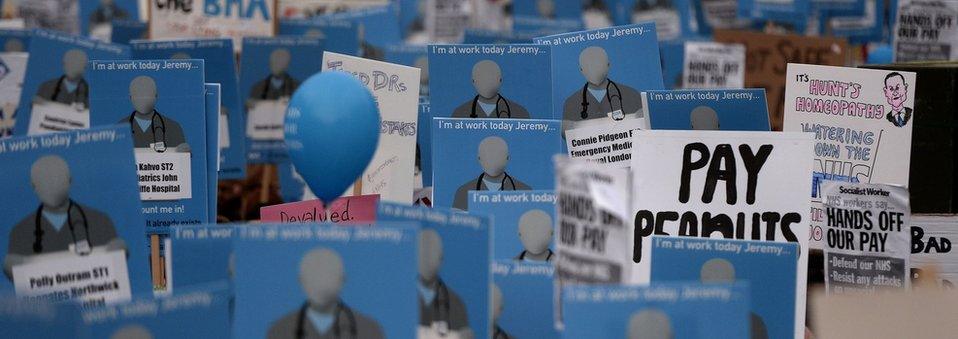
The row between junior doctors and the government is over a new contract
Talks broke down in 2014, but the dispute has escalated since the summer after ministers said they would impose the deal
Ministers offered doctors an 11% rise in basic pay last year, but that was offset by curbs to other elements of the pay package, including unsociable hours payments
The government has said the changes are needed to create more seven-days services, but the BMA has warned it could lead to doctors being over-worked because safeguards to keep a lid on excessive hours are being weakened
The union balloted its members in the autumn and 98% who voted backed strike action
Talks re-started in December, leading to the planned three days of strikes being cancelled, but these have so far failed to reach a breakthrough which is why strikes are taking place

Are you affected by the junior doctor strikes? Has your operation or treatment been cancelled? haveyoursay@bbc.co.uk, external with your stories.
Please include a contact number if you are willing to speak to a BBC journalist. You can also contact us in the following ways:
WhatsApp: +44 7525 900971
Send pictures/video to yourpics@bbc.co.uk, external
Tweet: @BBC_HaveYourSay, external
Send an SMS or MMS to 61124 or +44 7624 800 100
- Published8 January 2016
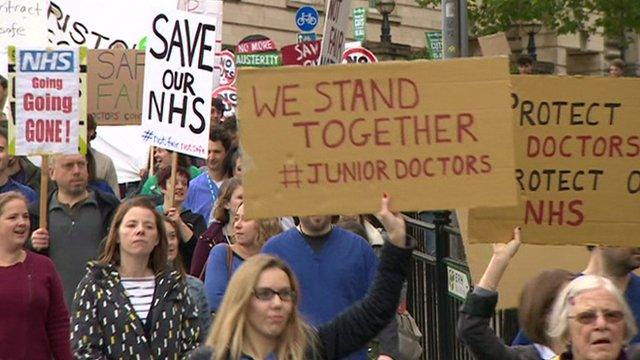
- Published6 April 2016
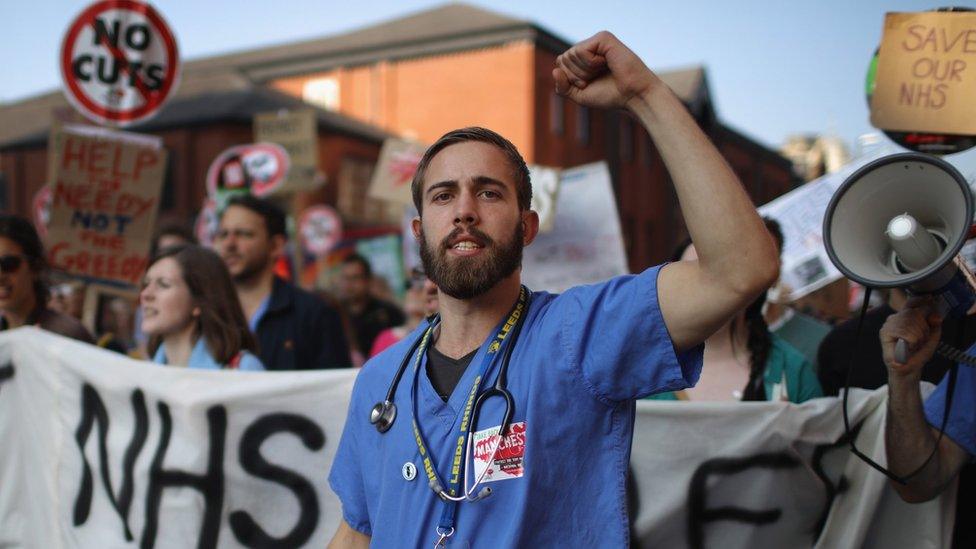
- Published11 January 2016
